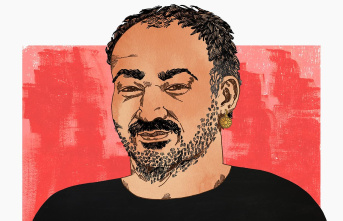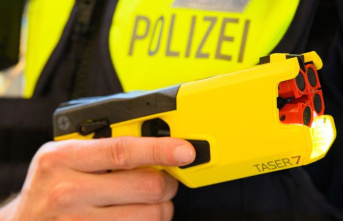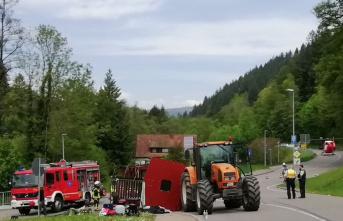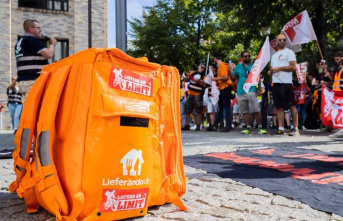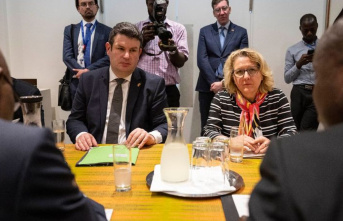Foreign Minister Annalena Baerbock (Greens) and Interior Minister Nancy Faeser (SPD) want to hand over more relief supplies in the south-east Turkish earthquake region today and get an idea of the situation of the people.
According to a spokesman for the Federal Foreign Office in Berlin, talks are also planned with representatives of aid organizations and non-governmental organizations working in Turkey and Syria. In the Kahramanmara region, which is further north-west and is also badly affected, the ministers want to speak to earthquake victims and helpers in a tent city.
More tremors claim lives
On February 6, two strong earthquakes shook southeast Turkey and northern Syria. The epicenter was in the southern Turkish province of Kahramanmaras. More than 47,000 people have died, including more than 41,000 in Turkey.
Only yesterday, further earthquakes with magnitudes of 6.4 and 5.8 shook the region. The epicenters were in Hatay province, according to the Kandilli earthquake station in Istanbul. At least three people were killed and more than 200 taken to hospitals, Interior Minister Süleman Soylu said in the evening. Several people were trapped under rubble. Pictures showed how people ran into the street in panic at the moment of the tremor. The earthquake was also felt in the surrounding provinces, in northern Syria and as far away as Lebanon.
The two earthquakes were followed by numerous aftershocks. Turkey's Vice President Fuat Oktay said it was not an aftershock of the big quake that happened two weeks ago.
Welthungerhilfe: More help for Syrian earthquake victims
Shortly before the ministers' visit, Welthungerhilfe called for more help for the affected Syrians. "In north-western Syria in particular, too little of the urgently needed support is still arriving," said the general secretary of the aid organization, Mathias Mogge, of the German Press Agency in Berlin.
The opening of further border crossings between Turkey and Syria is a start. "But now relief supplies such as water, medicine, food and tents must be delivered quickly and in sufficient quantities."
Employees on site reported "that the people in the Syrian earthquake areas feel abandoned by the international community for the second time," said Mogge. Welthungerhilfe is providing survival aid with local partners, but the need is huge. "We will need perseverance to assist the victims of the earthquake not only in surviving but also in the first phase of reconstruction," he predicted.
Discussions with victims and helpers planned in tent city
A good two weeks after the tremors, Baerbock and Faeser first went to the airport in the city of Gaziantep to find out about possible problems with the processing of the aid deliveries. There, further aid supplies from the Technisches Hilfswerk (THW) are to be handed over to the Turkish civil protection.
Aid deliveries are handled from the airport both for Turkey and for north-west Syria, which is also badly affected. It was initially unclear whether there would also be a meeting with Turkish government officials.
How does the facilitated visa issue work?
The two German ministers also planned to visit one of the reopened visa acceptance centers and a newly established mobile visa acceptance bus. Earthquake victims should be given three-month visas to temporarily stay with close relatives in Germany.
According to the Federal Foreign Office, Germany has issued entry permits to a “double-digit number” of people from Turkey just over a week after the introduction of the simplified visa procedure. Other applications are being processed, it said. By Friday afternoon, 20 visas had been issued.
The procedure was criticized because, despite the promise of unbureaucratic help for issuing a visa, a valid passport and a biometric photo are required. Critics complain that these are often unobtainable in view of the destruction.
Germany has been helping with 58 million euros so far
So far, Germany has provided aid amounting to 58 million euros for the earthquake victims - 8.2 million euros of which is for material supplies, according to the federal government. These include around 200 tents for twelve people each, as well as tent equipment such as camp beds, sleeping bags, generators, tent heating and lighting.
According to the federal government, 52 helpers and four rescue dogs from THW have been in the earthquake area, 38 emergency services and 3 rescue dogs from the NGO @fire, 43 emergency services and 7 rescue dogs from I.S.A.R. Germany and the Federal Police with 25 emergency services and 5 rescue dogs. Their operations have been completed. There are other German aid organizations on site. A conclusive overview of the German non-governmental organizations active there is not available.



